From The Blog
-
ConnectWise Slash and Grab Flaw Once Again Shows the Value of Input Validation We talk to Huntress About its Impact
Written by Sean KalinichAlthough the news of the infamous ConnectWise flaw which allowed for the creation of admin accounts is a bit cold, it still is one that…Written on Tuesday, 19 March 2024 12:44 in Security Talk Read 689 times Read more...
-
Social Manipulation as a Service – When the Bots on Twitter get their Check marks
Written by Sean KalinichWhen I started DecryptedTech it was to counter all the crap marketing I saw from component makers. I wanted to prove people with a clean…Written on Monday, 04 March 2024 16:17 in Editorials Read 1569 times Read more...
-
To Release or not to Release a PoC or OST That is the Question
Written by Sean KalinichThere is (and always has been) a debate about the ethics and impact of the release of Proof-of-Concept Exploit for an identified vulnerability and Open-Source…Written on Monday, 26 February 2024 13:05 in Security Talk Read 1103 times Read more...
-
There was an Important Lesson Learned in the LockBit Takedown and it was Not About Threat Groups
Written by Sean KalinichIn what could be called a fantastic move, global law enforcement agencies attacked and took down LockBit’s infrastructure. The day of the event was filled…Written on Thursday, 22 February 2024 12:20 in Security Talk Read 1074 times Read more...
-
NetSPI’s Offensive Security Offering Leverages Subject Matter Experts to Enhance Pen Testing
Written by Sean KalinichBlack Hat 2023 Las Vegas. The term offensive security has always been an interesting one for me. On the surface is brings to mind reaching…Written on Tuesday, 12 September 2023 17:05 in Security Talk Read 2123 times Read more...
-
Black Kite Looks to Offer a Better View of Risk in a Rapidly Changing Threat Landscape
Written by Sean KalinichBlack Hat 2023 – Las Vegas. Risk is an interesting subject and has many different meanings to many different people. For the most part Risk…Written on Tuesday, 12 September 2023 14:56 in Security Talk Read 1842 times Read more...
-
Microsoft Finally Reveals how they Believe a Consumer Signing Key was Stollen
Written by Sean KalinichIn May of 2023 a few sensitive accounts reported to Microsoft that their environments appeared to be compromised. Due to the nature of these accounts,…Written on Thursday, 07 September 2023 14:40 in Security Talk Read 2114 times Read more...
-
Mandiant Releases a Detailed Look at the Campaign Targeting Barracuda Email Security Gateways, I Take a Look at What this all Might Mean
Written by Sean KalinichThe recent attack that leveraged a 0-Day vulnerability to compromise a number of Barracuda Email Security Gateway appliances (physical and virtual, but not cloud) was…Written on Wednesday, 30 August 2023 16:09 in Security Talk Read 2091 times Read more...
-
Threat Groups Return to Targeting Developers in Recent Software Supply Chain Attacks
Written by Sean KalinichThere is a topic of conversation that really needs to be talked about in the open. It is the danger of developer systems (personal and…Written on Wednesday, 30 August 2023 13:29 in Security Talk Read 1879 times Read more...
Recent Comments
- Sean, this is a fantastic review of a beautiful game. I do agree with you… Written by Jacob 2023-05-19 14:17:50 Jedi Survivor – The Quick, Dirty, and Limited Spoilers Review
- Great post. Very interesting read but is the reality we are currently facing. Written by JP 2023-05-03 02:33:53 The Dangers of AI; I Think I Have Seen this Movie Before
- I was wondering if you have tested the microphone audio frequency for the Asus HS-1000W? Written by Maciej 2020-12-18 14:09:33 Asus HS-1000W wireless headset impresses us in the lab
- Thanks for review. I appreciate hearing from a real pro as opposed to the blogger… Written by Keith 2019-06-18 04:22:36 The Red Hydrogen One, Possibly One of the Most “misunderstood” Phones Out
- Have yet to see the real impact but in the consumer segment, ryzen series are… Written by sushant 2018-12-23 10:12:12 AMD’s 11-year journey to relevance gets an epic finish.
Most Read
- Microsoft Fail - Start Button Back in Windows 8.1 But No Start Menu Written on Thursday, 30 May 2013 15:33 in News Be the first to comment! Read 116518 times Read more...
- We take a look at the NETGEAR ProSafe WNDAP360 Dual-Band Wireless Access Point Written on Saturday, 07 April 2012 00:17 in Pro Storage and Networking Be the first to comment! Read 87453 times Read more...
- Synology DS1512+ Five-Bay NAS Performance Review Written on Tuesday, 12 June 2012 20:31 in Pro Storage and Networking Be the first to comment! Read 82010 times Read more...
- Gigabyte G1.Sniper M3 Design And Feature Review Written on Sunday, 19 August 2012 22:35 in Enthusiast Motherboards Be the first to comment! Read 80320 times Read more...
- The Asus P8Z77-M Pro Brings Exceptional Performance and Value to the Lab Written on Monday, 23 April 2012 13:02 in Consumer Motherboards Be the first to comment! Read 70967 times Read more...
Displaying items by tag: Windows
New Malware Found with Stuxnet Similarities
 Just in case all of the warnings that we gave you before about SCDA (Supervisory Control and Data Acquisition) devices and how insecure most of them are was not enough. We now find that a new piece of malware that appears to be intended spy on industrial networks as a precursor to a future attack like the Stuxnet malware that hit last year. Dubbed Duqu because of a prefix attached to files the new malware creates this new bit of code is very concerning to security experts.
Just in case all of the warnings that we gave you before about SCDA (Supervisory Control and Data Acquisition) devices and how insecure most of them are was not enough. We now find that a new piece of malware that appears to be intended spy on industrial networks as a precursor to a future attack like the Stuxnet malware that hit last year. Dubbed Duqu because of a prefix attached to files the new malware creates this new bit of code is very concerning to security experts.
The code was found on several Windows based systems across multiple companies in Europe. These companies were not directly identified but all appear to have connections to industries that directly interact with basic infrastructure services. As of right now Duqu appears content to just gather information and report back to its command and control servers (including using an internal key logger). Duqu also appears to be sending JPG files back and forth between the server and the infected system, but as many found out to their dismay you can embed quite a bit of information in a JPG files so these could be used to send control instructions and responses or could be nothing more than test files right now.
So far researchers are at a loss as to what Duqu is collecting and why this is happening. They do know that the attacks have been going on since at least December 2010 and that the first variant identified used a stolen certificate much like the original Stuxnet did. Researchers at Symantec and McAfee also feel that the creators of this code had access to the source code of Stuxnet as the two pieces of Malware are very similar in the way they operate and the coding used. Both McAfee and Symantec have also stated that Duqu does not spread and that it does not appear to use any known exploits. This would indicate that the malware uses tactics like drive-by, or social engineering based exploits. These rely on human intervention to download and install the malicious code on a system usually via email or web link.
We personally wonder if this is related to some of the rumors about Anonymous stepping up their attacks on Governments and Large Corporations. After all with what they can gather using some fairly simple techniques (and a nice bit of coding) they can put some rather devastating plans into action very quickly. If this is the case (and this is all just speculation) then we might be looking at an attack that no one is really prepared for. Then again this could all be nothing more than a reconnaissance mission, especially considering the fact that the code uninstalls itself after 30 days…
Source Symantec and McAfee
Discuss this in our Forum
Consumers want a Windows Based Tablet
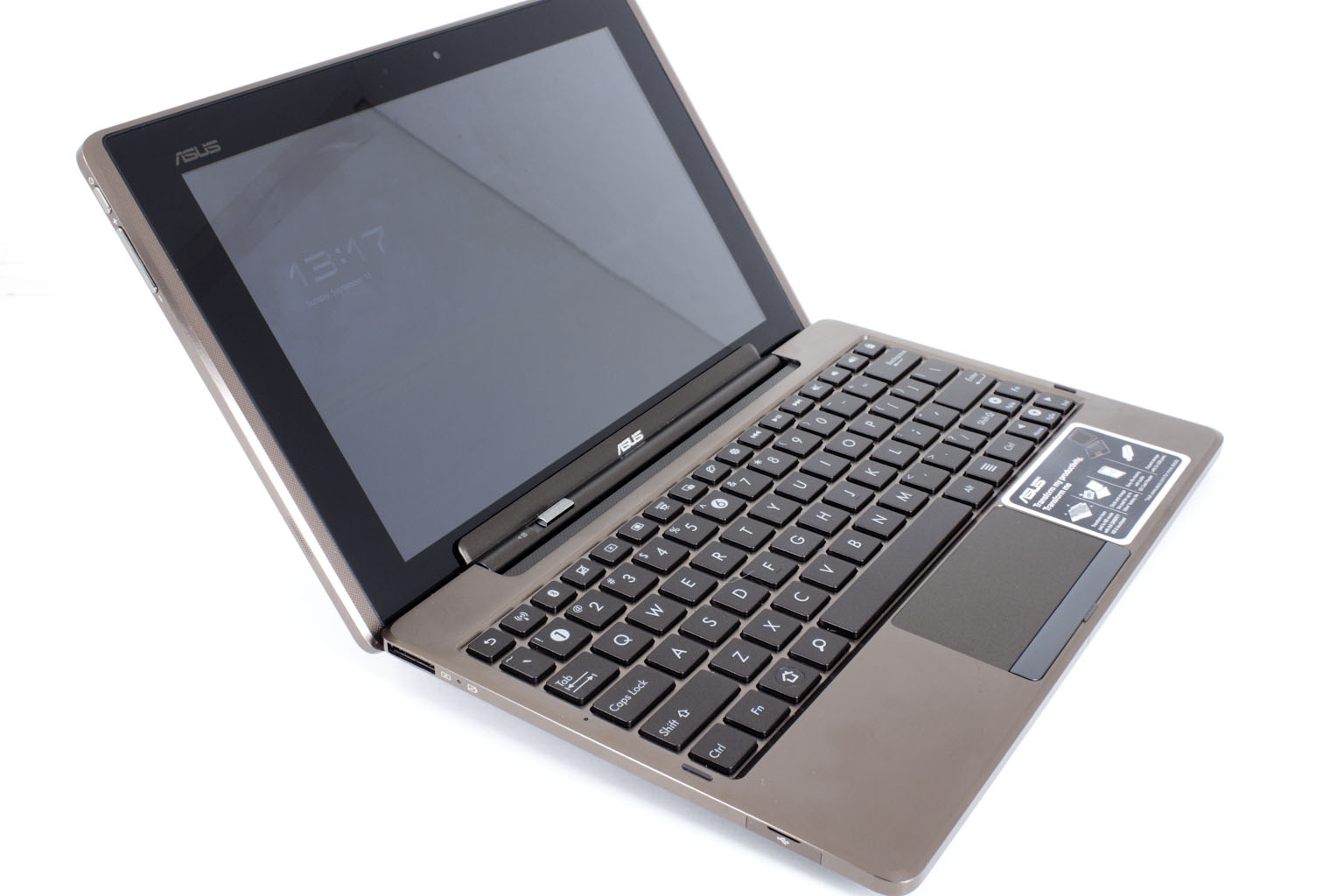 Remember how we told you not too long ago that Microsoft was being smart by working on a tablet friendly version of Windows 8? (Which they have been trying very hard to screw up) Well, one of the things we said about this was the people want a tablet that can do real production work. We have seen this in our own tinkering with multiple tablets from the iPad, iPad2, Transformer and the Flagship tablet, the Asus EEE Slate EP 121. Out of all of these, the only one that we can actually do full production work on is the EP121. Oddly enough (not really) it is also the only one of the group that runs on Windows 7.
Remember how we told you not too long ago that Microsoft was being smart by working on a tablet friendly version of Windows 8? (Which they have been trying very hard to screw up) Well, one of the things we said about this was the people want a tablet that can do real production work. We have seen this in our own tinkering with multiple tablets from the iPad, iPad2, Transformer and the Flagship tablet, the Asus EEE Slate EP 121. Out of all of these, the only one that we can actually do full production work on is the EP121. Oddly enough (not really) it is also the only one of the group that runs on Windows 7.
Don’t get me wrong; I love the Transformer (we will have a review of that up soon) for its versatility and ease of use. It is a great little tool and easy to transport. However, there are no real productivity apps available for it. I have tried all of the office suites from Documents to Go, Apple’s Pages, to Quick Office. None of them can compete with Office 2010; even Pages (which comes closest) cannot cut it. The tools and flow are not there, it is as simple as that.
It seems that this is not just my opinion on the subject, but a majority of consumers in both the US and China. According to a poll taken by the Boston Consulting Group and another one by Forrester earlier this year over 40 % of US consumers would like a Windows Based Tablet. BCG’s numbers came in at 42% while the Forrester report showed a nice 46% wanted a Windows based tablet. The remaining 50%+ was not all iOS either. Forrester claimed that 9% were interested in Android while 16% wanted iOS. BCG’s study claimed that 20% were interested in Android while 27% were looking into an iOS based tablet.
These numbers are only shocking when you leave out what people really want from their devices. They want a seamless experience. One thing that bugs me about having a desktop, laptop, and two different tablets is that to do anything on the Transformer I have to format it differently (especially videos). On the other Windows based devices, I just move files back and forth or put them in my Asus Cloud Drive account (if they are not important or need security). Of course it also does not mean they want something like the EP121. While I love my EEE Slate, it can be bulky and is awkward to use with the keyboard at times. No what they want is something like the Tab or the Transformer, but running all of their favorite Windows software (including Office); this is what will finally bring the tablet home for many people.
So it seems that I am not the only one that feels that Windows is making the right (if somewhat late) move to a more tablet based OS and will only increase their potential for profit by coding for ARM (something they should have done with Windows 7). Of course… that is saying they do not alienate all of their potential customers by failing to grasp what the market really wants in a tablet.
Source All things D
Discuss in our Forum
Why Microsoft continues to fail
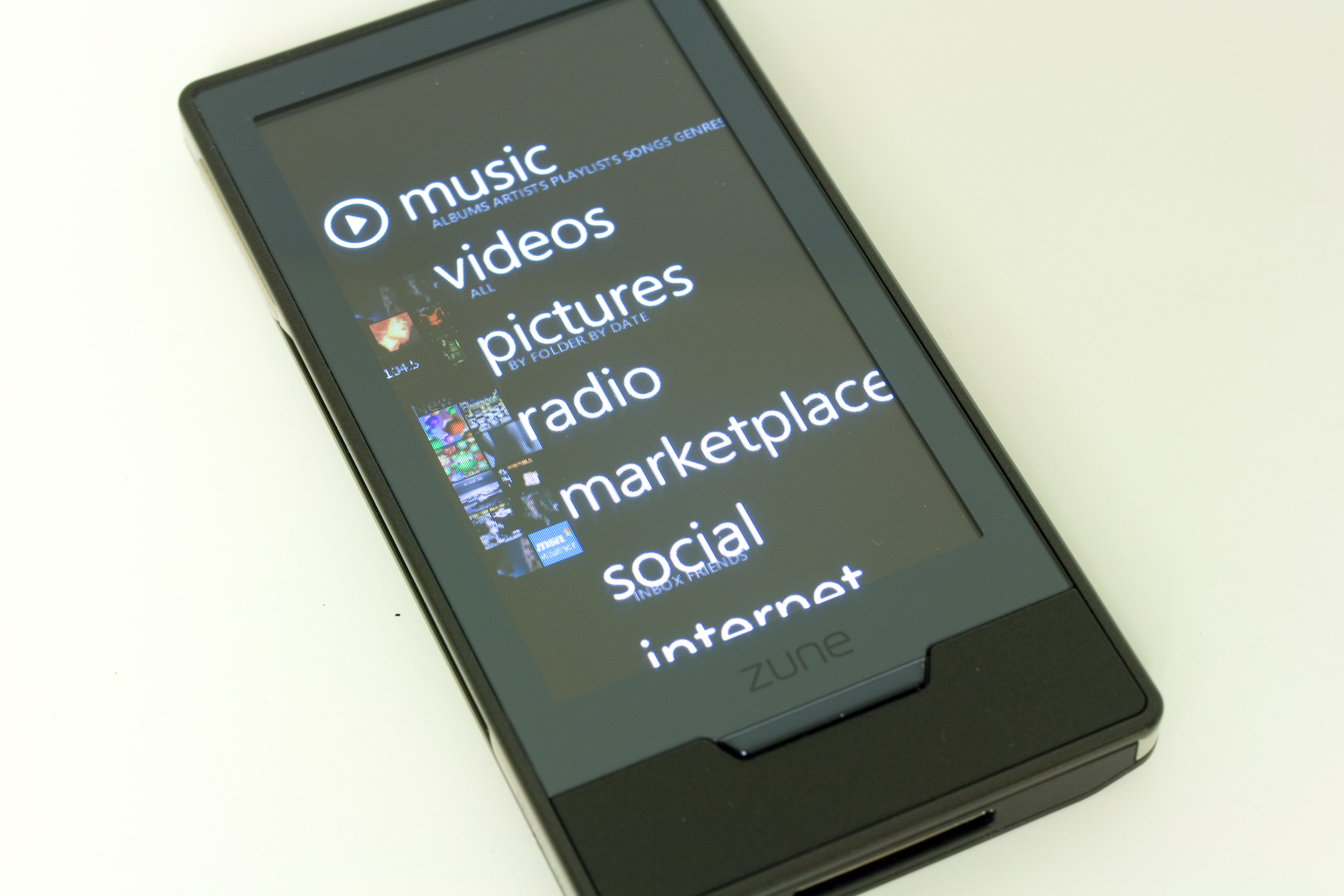 One of the things that continues to annoy me about Microsoft is their constant failures. These failures are not due to product failures. The products they make are pretty solid; no it is because Microsoft fails to understand the market they are competing in. In the Operating system market Microsoft truly only has one competitor. I know I am annoying the Linux guys when I say this but Apple is their only real competition when it comes to the desktop OS. The same thing can be said for their Productivity suite Office. Even Mac owners use Office for Mac. Again I know there are multiple open source office products but even the most popular of them cannot compete with Microsoft sales in this area.
One of the things that continues to annoy me about Microsoft is their constant failures. These failures are not due to product failures. The products they make are pretty solid; no it is because Microsoft fails to understand the market they are competing in. In the Operating system market Microsoft truly only has one competitor. I know I am annoying the Linux guys when I say this but Apple is their only real competition when it comes to the desktop OS. The same thing can be said for their Productivity suite Office. Even Mac owners use Office for Mac. Again I know there are multiple open source office products but even the most popular of them cannot compete with Microsoft sales in this area.
Chrome Accidentally Identified as Malware
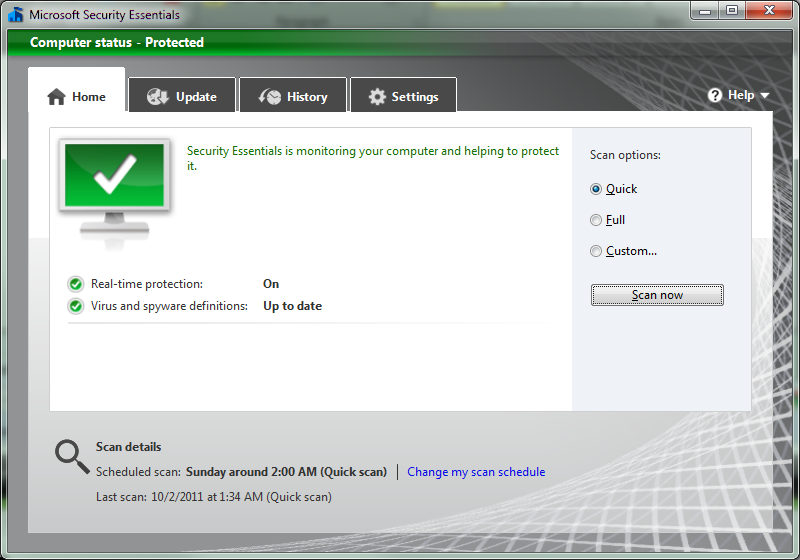 Sometimes old news is funny news and this one falls into that category. On Friday the 30th of September a new malware definition database for Microsoft’s Security Essentials (that comes with almost every current version of Windows) began mistakenly (?) identifying Google’s Chrome Web Browser as a form of Malware known as Win32/Zbot. As a result it either blocked or removed Chrome from the “infected” system.
Sometimes old news is funny news and this one falls into that category. On Friday the 30th of September a new malware definition database for Microsoft’s Security Essentials (that comes with almost every current version of Windows) began mistakenly (?) identifying Google’s Chrome Web Browser as a form of Malware known as Win32/Zbot. As a result it either blocked or removed Chrome from the “infected” system.
Now Win32/Zbot is a nasty little piece of malware that is known to steal passwords and other personal information. According to information about Zbot in the internet it is capable of grabbing FTP passwords, E-Mail passwords, lowering security on IE, FireFox and other browsers other malicious activities. Microsoft quickly released an updated signature database that corrects the false positive, but it is also worth mentioning that Google released an updated version of Chrome as well.
My question is this, if Chrome was not exhibiting any “unwanted” behaviors then why change it? After all Microsoft released an updated engine to prevent it from being removed unintentionally. Perhaps it has something to do with the way that Chrome scavenges user data and stores browsing history (even if the user tells it not to). Since its release there have been concerns over the way Chrome caches browsing history, passwords and other sensitive user information. In fact in the early releases we tracked the software writing to the System Volume Information folder and then sending this data back to Google serves. We have heard that this behavior is no longer happening but have not tested the latest versions.
Unless I have completely missed the mark I have a feeling that there is a little bit of truth to the accidental identification of Chrome as a Malware and that Google had to respond to prevent other Malware prevention software from finding the same thing. Meanwhile many IT departments still prohibit the use of Chrome for security reasons… you be the judge on this one.
Discuss this in our Forum
It’s the same old, same old again…
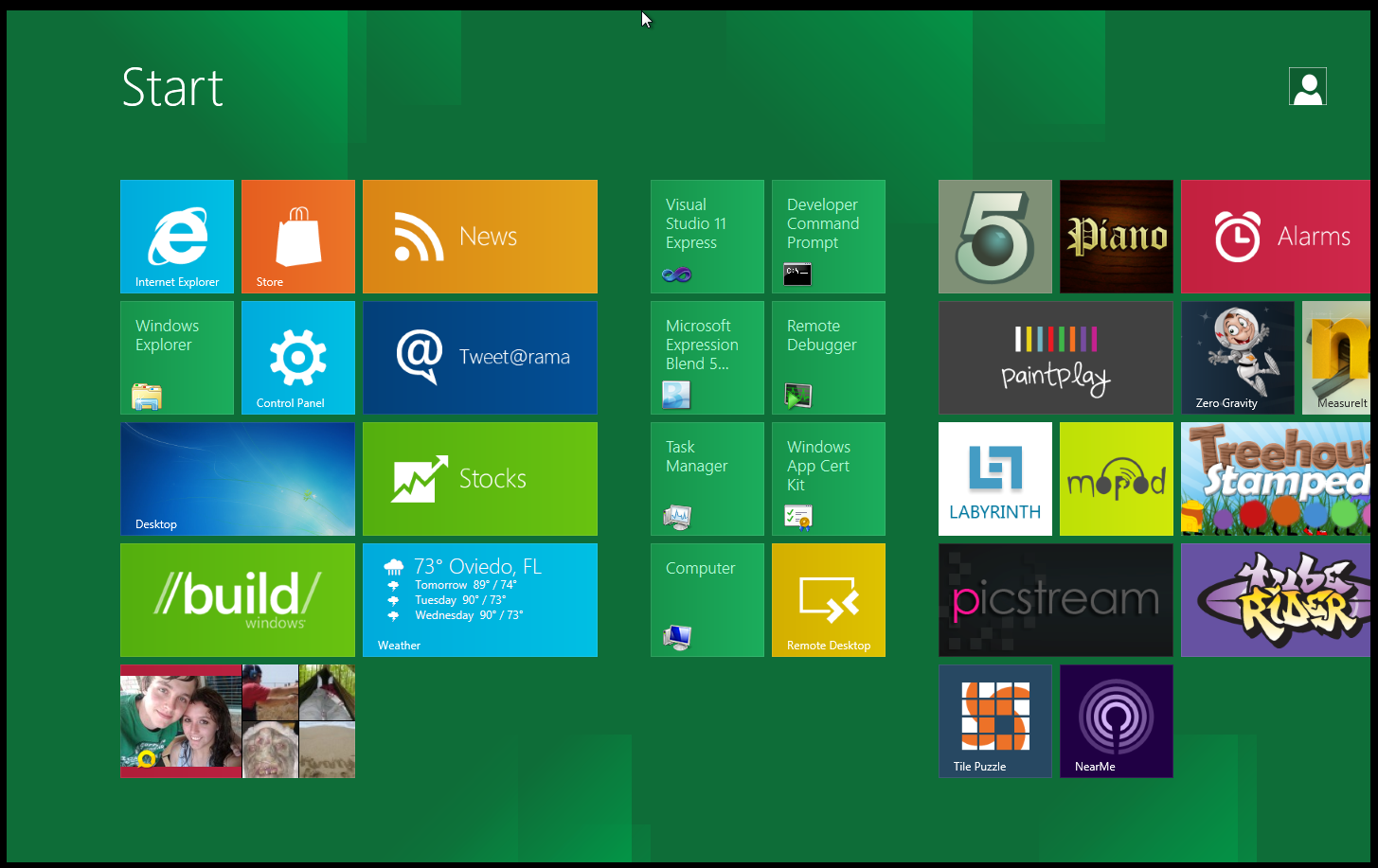 Now that Windows 8 has hit the “general public” in the form of a developer’s preview we are starting to see the internet community chime in about whether they like it or not. I have been reading quite a bit of this (as you can imagine) and have been struck once again by how people complain about, yet resist and fear any type of change.
Now that Windows 8 has hit the “general public” in the form of a developer’s preview we are starting to see the internet community chime in about whether they like it or not. I have been reading quite a bit of this (as you can imagine) and have been struck once again by how people complain about, yet resist and fear any type of change.
I have been working in the IT industry since the birth of Windows 3.0 one of my first large scale projects was implementing Windows 3.11 for workgroups into Fort Riley during my time with the US Army. I can remember the grumbling prior to this “new” software coming in about how the current system was terrible because it could not do this or that. When we brought Microsoft in (we even brought the early components of Office in) the same people that complained about the current UNIX based system were suddenly its biggest fan. I can remember one clerk who complained loudly and often about the system suddenly thought it was the best one we had. She did not like the new Windowed interface and Word was just horrible compared to her usual word processing application (which was called Wordstar).
Now take a big jump forward in time; Windows 8 is a rebuilt OS with a new (although somewhat cheesy) UI. Microsoft has really put in some effort to move with the market and change the OS to meet the needs of the new tablet based consumer. If you think about it more and more people are moving in the direction of the tablet/smart phone for their day to day needs. I am not saying it is there for productivity but for the general computing people do the tablet is the ideal platform. Microsoft HAD to change and reinvent its OS or it would be lost in the stampede of more and more powerful general usage tablets.
I personally own both an Android and Windows based tablet. One is the Asus EEE Slate EP121 the other is the Asus Transformer. When I want to tinker around or just surf the net I grab the light and small Tegra 2 armed (no pun intended) Transformer. When I want to do some work I grab the EP121 with its Core i5 470 UM and 4GB of RAM. The problem with Android (and even the iPad to a certain extent) is that there are no real productivity applications that truly work. Polaris Office, Documents to Go, and all of the others that I have tried all fall very short of the mark of MS Office or even Open Office. Apple knew this with the iPad so they came up with light versions of their productivity applications for iPad users. Android has nothing like this so it is hard for me to get real work done. Instead I surf the net looking for news and then add it to my Evernote account and pull out the EEE Slate or power up the desktop to get the real work done.
This brings us to Windows 8; Microsoft is taking a leaf out of Apple’s book here with their development of a light version of Windows 8 for ARM. It will give people a consistent feel to their computing experience. It the OS you run on your tablet looks and feels the same as the one you run on your desktop that is an improved user experience. Now you can also bet there is a version of Office in the works for ARM to keep that the same. It will be like the interaction between the iPad and Apple’s OSX clean and consistent. Microsoft is doing something very smart with this move and from what we are hearing many of the tablet makers are behind this movement. We know that nVidia certainly is.
Between now and the time that Windows 8 Launches (around November 2012) you will hear people taking sides ARM, x86, Windows 8, Windows 7 (much like those that did not want to leave XP), Tablet, Desktop, Laptop; the choices will be just as confused as some of the reasons to be on one side or the other. Just keep in mind that with one move Microsoft has made it possible to cover all of these. Windows 8 will work for ARM and x86. Windows 8 can run with the Metro UI for Tablets and can also run in Desktop Mode for more traditional PC’s and Laptops (giving you a Windows 7 feel). No matter the camp you are in it looks like Windows 8 could have something for you.
Discuss this in our Forum
Windowd 8 Detailed at Microsoft's Build Conference
 Yesterday all of the news was about Microsoft’s Build Developer conference out in California (Anaheim to be exact). Now this conference is (as you could guess) all about developing applications and software for Windows operating systems and also about Windows in general. So it should come as no surprise that one of the highlights was the talk about Windows 8. Attendees at the conference were treated to a preview of Microsoft’s next OS even though the Developer’s blog on Windows 8 has been very handy in keeping the press and the rest of the world up to speed on things. We have reported on one or two new features highlighted on that site and are looking forward to hearing about more of them in the near future.
Yesterday all of the news was about Microsoft’s Build Developer conference out in California (Anaheim to be exact). Now this conference is (as you could guess) all about developing applications and software for Windows operating systems and also about Windows in general. So it should come as no surprise that one of the highlights was the talk about Windows 8. Attendees at the conference were treated to a preview of Microsoft’s next OS even though the Developer’s blog on Windows 8 has been very handy in keeping the press and the rest of the world up to speed on things. We have reported on one or two new features highlighted on that site and are looking forward to hearing about more of them in the near future.
However, all that aside, back to the Build conference. The attendees were not only treated to a more in-depth preview of Windows 8 they also heard from some of the manufacturers that are going to support Win8. One of these was nVidia as they talked up their new developer program for Windows 8 on x86 and Tegra. nVidia has been talking about Windows 8 for some time (as have we) and they are looking forward to it launch so that they can begin rolling out the Windows 8 based tablets for their Tegra SoCs.
Windows 8, unlike previous versions of Windows, will be something of a game changer. Microsoft has worked pretty hard to make this OS more hardware friendly including showing that you can run this on an older Atom CPU with as little as 1GB of RAM. Other nice options (very tablet friendly options) are things like full NFC (Near Field Communication) support. This allows you to interact with items like Bluetooth headsets with a single tap, tap-to-share file access, and other items once reserved for smartphones. We have to wonder if Google and Apple are getting a little concerned about the Windows 8 right about now.
For those of you looking to try things out, there is a developer preview available for download.
Discuss in our Forum
Microsoft shows off improvements to file management in WIndows 8
 Microsoft is looking to pull off a reverse of the way Vista was killed. For those of you that remember Vista (and that should be most of you) you will know that Vista was pretty much dead before it hit the market due to several very negative statements that ended up running around the internet like crazy. It created a phenomenon that we call the repeated truth. What happened was that these statements were linked and sourced by so many blogs that even though some of the original writers had never even seen the OS it became “fact” that it was flawed. I am not saying that Vista did not have more than its fair share of problems but it was not all bad.
Microsoft is looking to pull off a reverse of the way Vista was killed. For those of you that remember Vista (and that should be most of you) you will know that Vista was pretty much dead before it hit the market due to several very negative statements that ended up running around the internet like crazy. It created a phenomenon that we call the repeated truth. What happened was that these statements were linked and sourced by so many blogs that even though some of the original writers had never even seen the OS it became “fact” that it was flawed. I am not saying that Vista did not have more than its fair share of problems but it was not all bad.
To combat this Microsoft has put a much more visible blog online called “Building Windows 8”. This blog has articles about some of the key features and improvements coming in Windows 8. We have already told you about the improved USB 3.0 stack and the accompanying power management layer. Now we are going to talk about improvements to file management system.
According to Microsoft moving, copying, renaming and deleting data accounts for 50% of the commands used by consumers. This data is really not a shock as it only makes sense when you think about the number of songs downloaded, digital images moved and e-mailed, pictures grabbed from sites like Grumpy Rabbit and others. Because they finally noticed this (and because the smaller and move portable tablets and ultra-thins will have limited space) the Windows 8 Engineers decided to revamp the way that files are manipulated. What they did was make your file management look more like the download manager in IE or FireFox with a few nice extras thrown in.
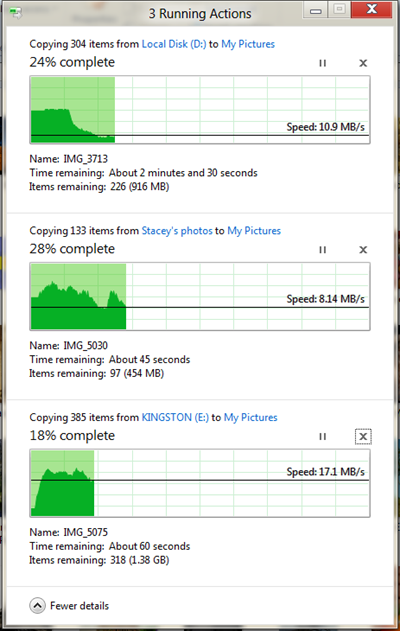
The basic view still looks like the typical copy or move window with the exception of the fact that as you add more files to the queue you do not get another window. Instead the new file shows up in the same window making it easier to monitor. The “More details” option has also gotten a face lift. Now when you click on this you get a real-time throughput graph of each pending job which is pretty cool.The last thing the Windows 8 team did was to revamp the copy and replace window. Instead of the boring single thumbnail you now get a complete listing of conflicts and the option to choose what you want to do with each.
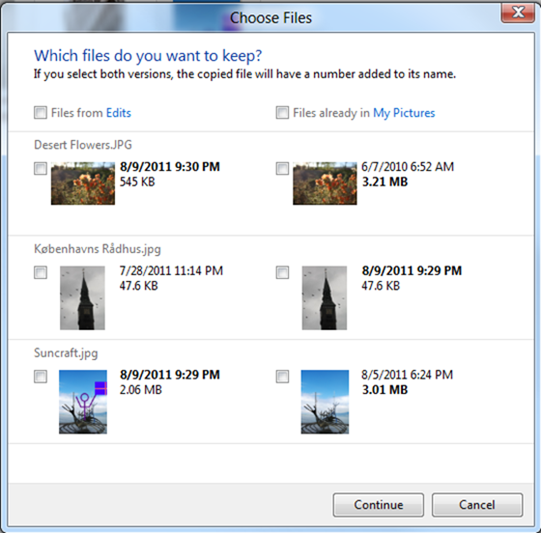
This may seem like a little thing on the surface, but in terms of usability and user experience it is huge. I hope that the improvements keep coming and all are like this one.
Source Building Windows 8
Discuss this in our Forum
What will Windows 8 mean to Apple’s Litigation Spree?
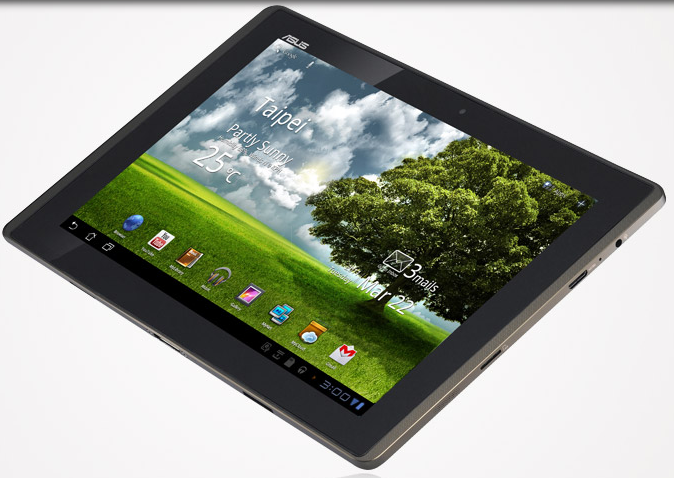 Apple has been having a blast dropping patents for vague concepts and even an entire device type (with their pending Pico Projector patent) regardless of prior art and at times regardless of if the patent is actual technology or not (the look and feel of something). Then they take these patents and wave them in the face of judges that have no real idea of what the patent is (or is not) covering asking for injunctions and outright bans on products from companies that are relatively underfunded in the legal department. If you ask Apple about this they will stand and say that they are protecting their Intellectual Property (which in many cases was “borrowed” from another company that cannot afford a legal fight with Apple like S3). This abuse of the patent and copyright system is detestable, but is an article for another day.
Apple has been having a blast dropping patents for vague concepts and even an entire device type (with their pending Pico Projector patent) regardless of prior art and at times regardless of if the patent is actual technology or not (the look and feel of something). Then they take these patents and wave them in the face of judges that have no real idea of what the patent is (or is not) covering asking for injunctions and outright bans on products from companies that are relatively underfunded in the legal department. If you ask Apple about this they will stand and say that they are protecting their Intellectual Property (which in many cases was “borrowed” from another company that cannot afford a legal fight with Apple like S3). This abuse of the patent and copyright system is detestable, but is an article for another day.
The question I am wondering is, why has Apple not gone after Microsoft? Windows 7 on a tablet has Pinch to Zoom, finger gestures and even the same “look and feel” when you scroll with your finger. Now, I could be wrong, but if Apple is trying to protect their IP you would think they would be going after Microsoft in a big way. I am also pretty sure they would be adding Asus (who has one of the best-selling Windows Based Tablets on the market right now) to their legal wish list as well. So, why do they leave these two obvious copy cats out of the litigation arena?
Well, here are a few reasons that we were able to come up with based on research. Microsoft is safe simply because they have bailed out Apple multiple times in the past and also have several patents and items that Apple needs to survive (Office for Mac is still a huge seller). Whether the Apple faithful and Steve Jobs want to admit it or not Apple owes it very existence to their rival; without Bill Gates and Microsoft we would be talking about Apple in the past tense. Right now Adobe is wishing they had dropped money into that bailout instead of just spending time and money making their products work on Apple’s RISC (Reduced Instruction Set Computer) based systems (the PowerPC days). If they had, they perhaps they would have some leverage in the whole HTML5 Vs. Flash competition. This also applies to Microsoft’s net generation operating system Windows 8. In fact is applies even more as Microsoft is writing it to work on ARM based CPUs. The previews that we have seen also make it very tablet friendly and an obvious threat to Apple’s weakening hold on the tablet market. Yet, we have heard no call to arms from the Apple legal team over this.
So, what about Asus and their tablets? Asus is also untouchable right now because they also have something that Apple wants; A manufacturing facility. Apple has been looking for alternatives to Foxconn due to the bad press surrounding the company’s many suicides. The world now knows that the iPhone, iPod and many other Apple products are assembled there and with the many deaths over working conditions at these plants the eyes are turning to look at Apple. The question has already been raised by many humanitarian groups “why has Apple done nothing about this?” You would think that a company that claims to be so “Green” and Earth Friendly would be appalled by what is happening over there. However, other than a few press releases (which usually tame the faithful) Apple has done nothing. At least on the surface, we have heard rumors that Apple is courting Pegatron as an alternative manufacturing site for the next generation of iToys. If this is true (and as of now we have no evidence to the contrary) then Apple would not want to get Asus upset. After all Asus owns Pegatron. It is their manufacturing company.
So then next time you hear an Apple press representative standing on the soapbox and loudly declaiming how they are protecting their Intellectual Property from the masses of thieves and copy-cats out there, just remember that they are only throwing this around at the companies they feel they can bully into submission. In the end no one likes a bully, and bullies usually reap what they sow in the long run.
Asus' EEE Slate EP121 1A011M Poked and Prodded
 With every new product that hits the market there are going to be winners and losers. This is true from CPUs to GPU s and everything in between. There is one place where this is more true than any other segment of the market; this is the mobile market. Now the mobile market does not just mean phones (smart or dumb). This market includes everything from portable power sources to fully fledged desktop replacement notebooks. Currently the most competitive market is in the Tablet world. To most people Apple is king. They have the most successful tablet device out and are well into the second generation of the iPad. But first does not always mean best nor does popularity alone indicate complete success (although it certainly helps). Today we have the chance to take a look at one of the competitors to Apple. Not necessarily the iPad, although it will challenge that device in a major way, this is more of a direct threat to the Apple fan base and their tablet/ultra-portable devices. This is the EEE Slate EP121 (also called the EEE Pad) from Asus; a product launched at CES and one that packs quite a bit of hardware including an Intel Core i5 Dual Core CPU and up to 4GB of RAM. So sit back for a good read and decide for yourself if this one falls into the winner’s group or the losers.
With every new product that hits the market there are going to be winners and losers. This is true from CPUs to GPU s and everything in between. There is one place where this is more true than any other segment of the market; this is the mobile market. Now the mobile market does not just mean phones (smart or dumb). This market includes everything from portable power sources to fully fledged desktop replacement notebooks. Currently the most competitive market is in the Tablet world. To most people Apple is king. They have the most successful tablet device out and are well into the second generation of the iPad. But first does not always mean best nor does popularity alone indicate complete success (although it certainly helps). Today we have the chance to take a look at one of the competitors to Apple. Not necessarily the iPad, although it will challenge that device in a major way, this is more of a direct threat to the Apple fan base and their tablet/ultra-portable devices. This is the EEE Slate EP121 (also called the EEE Pad) from Asus; a product launched at CES and one that packs quite a bit of hardware including an Intel Core i5 Dual Core CPU and up to 4GB of RAM. So sit back for a good read and decide for yourself if this one falls into the winner’s group or the losers.
